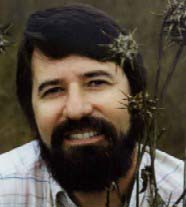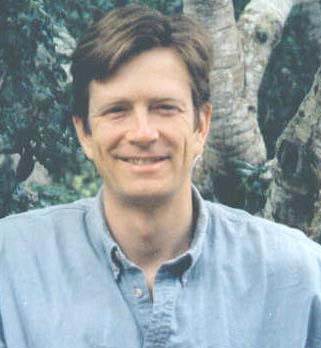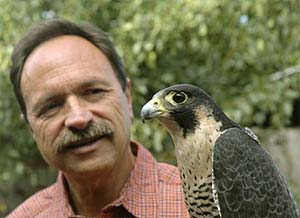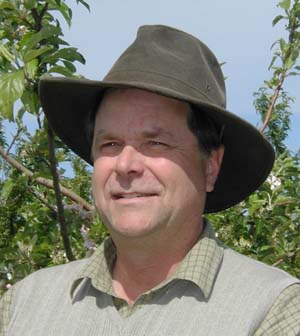From Rachel Carson College Wiki
| Candace Calsoyas
|
| [[Image:]]
|
Candace works with the College 8 Garden, raises organic Christmas trees, and has toured the world on a semester at sea program
|
| [{{{4}}} website]
|
| Joy Hagen
|
| [[Image:[joyhsm.jpg]]]
|
bio
|
| [website website]
|
| Patrick McKercher
|

|
Patrick McKercher teaches in the Writing Program at the University of California Santa Cruz. He did his doctoral work on the nature and use of metaphor in the Rhetoric and Linguistics program at the University of British Columbia in Vancouver, Canada. He has extensive outreach experience and worked on integrating digital technology into K-16 education. In particular, he has researched the educational potential of virtual worlds from time of text-based MUDs/MOOs to the present. More recently, he has been project manager for James Burke's Knowledge Web K-Web.org, an open source collaborative and immersive knowledge navigation tool. In addition, he has worked on documentaries shown on public bradcasting such as ReConnections and So My Grandchildren Will Know.
|
| website
|
| Dustin Mulvaney
|
| File:Image
|
Dustin received a Ph.D. in Environmental Studies at the University of California, Santa Cruz, and holds a B.S. in Chemical Engineering and a M.S. in Environmental Policy Studies from the New Jersey Institute of Technology. His dissertation research explored social resistance to genetically engineered organisms and the efficacy of the anti-genetic engineering social movement. Before coming to UCSC, Dustin worked as a site engineer for a bioremediation firm. Previous to that, he spent several years in the chemical industry as a process engineer. He is currently working on turning his dissertation into a book manuscript, while pursuing new research projects on the California rice industry, criteria for salmon aquaculture certification, gene flow in maize landraces, and the effects of climate change on sugar maples.
|
| [website website]
|
| Neal Schaefer
|

|
Hi everyone, My name is Neil Schaefer. The themes and questions raised
in our section of College Eight Core will be based largely on what you,
the students, find interesting and important in the texts. Class
preparation and participation are important. You will develop your own
theses and argue for them in your essays. For your final project, you
will present the pros and cons of some recent home town proposal that
would have important environmental consequences (good or bad).
Here's my background: I have a Ph.D in Philosophy from the University
of Massachusetts Amherst. I specialize in ethical theory, environmental
ethics, and philosophy of science. As an undergraduate, I studied
Finance at Santa Clara University and Psychology at Stevenson College.
But one of my secret passions is writing haiku.
|
| [website website]
|
| Glen Stewart
|

|
Glenn R. Stewart is coordinator for the Santa Cruz Predatory Bird Research Group with offices at Long Marine Lab. He is a conservation biologist who led projects to restore extinct populations of bald eagles to Central California from a research station in Big Sur, and Harris’ hawks to the lower Colorado River along the California/Arizona border. He also studied goshawks in the eastern Sierra Nevada and bald eagles at Prince William Sound, Alaska. He worked to protect public recreation and wildlife values on public lands as executive director of Idaho Conservation League during the early 1990’s.
Today, Glenn Stewart uses the iconic peregrine falcon—a species the Predatory Bird Research Group dedicated captive breeding and management expertise to that helped its recovery from near extinction—to connect people with nature. A program including “citizen science,” public presentations, falcon nest web cameras, on-line falcon discussion forums, and student internships is in place to help achieve conservation goals.
|
| website
|
| Sean Swezey
|

|
Sean L. Swezey received his Ph. D. in Entomology from the University of California, Berkeley in 1982. He is currently Associate Director and Specialist for organic farming systems research and extension at the Center for Agroecology and Sustainable Food Systems at UC Santa Cruz. His research interests emphasize the practical application of pest management theory and on-farm research to production of organic strawberries, apples, and other California organic crops. His career includes teaching and research appointments at UC Berkeley (1976-81), the National Autonomous University of Nicaragua, Leon (1981-1988), Cornell University (1983-84), and UC Santa Cruz (1987-present) where he has taught as Lecturer and Adjunct Associate Professor in the Department of Environmental Studies. In the department, he teaches upper division courses on organic agriculture, integrated pest management, and principles of sustainable agriculture.
|
| website
|



